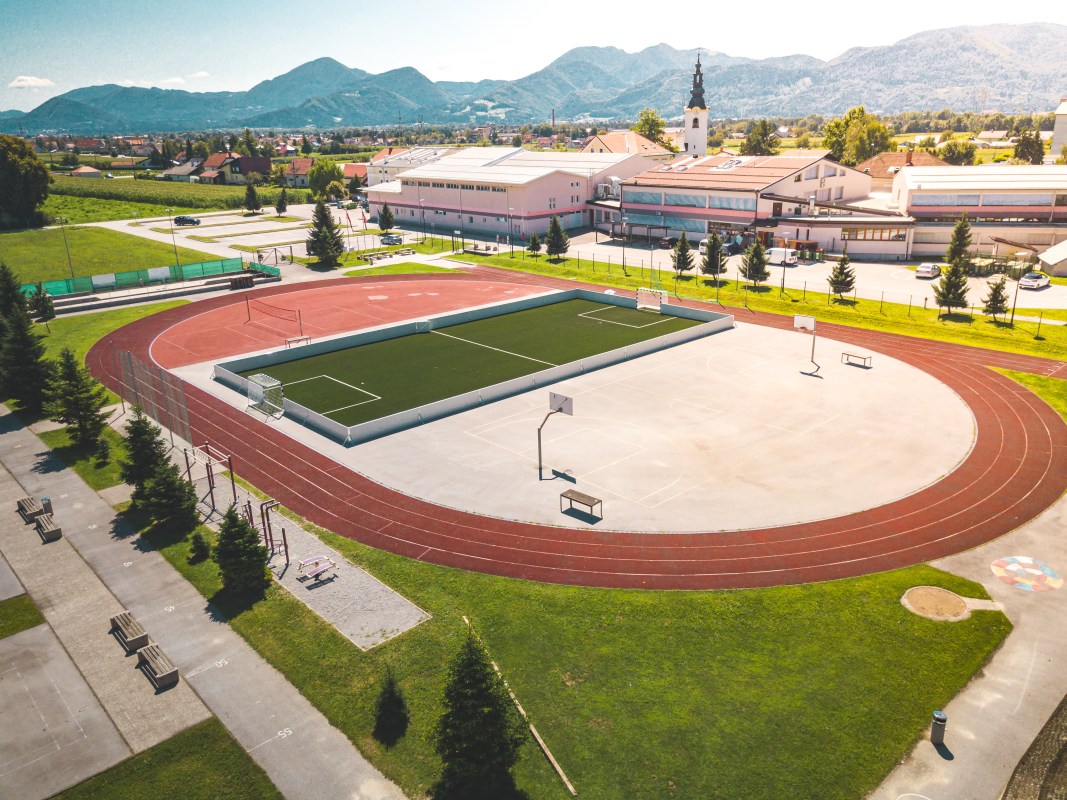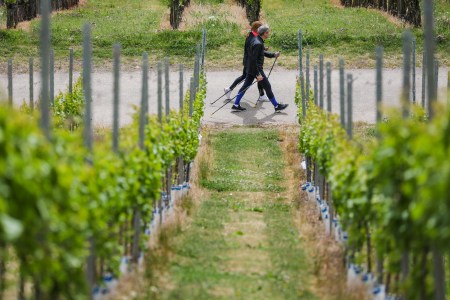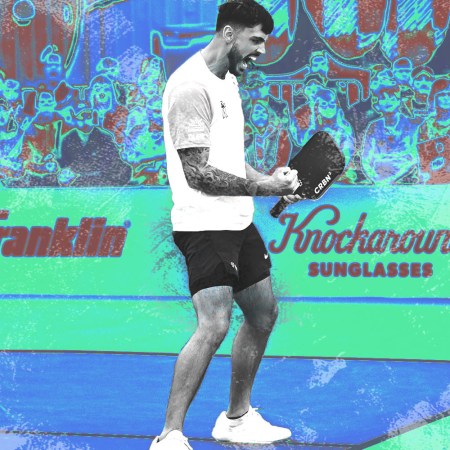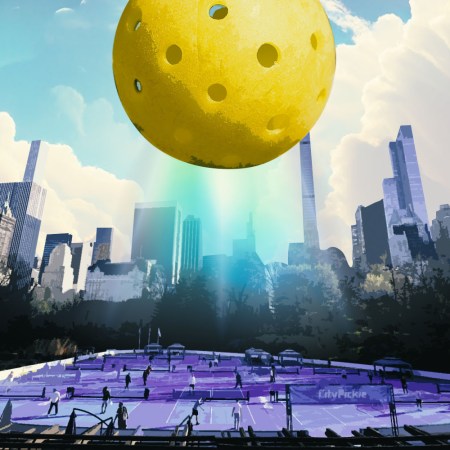A smattering of people who live next to pickleball courts are convinced the sport’s emergence is taking years off their lives. In a recent New York Times article (with the memorable headline “Shattered Nerves, Sleepless Nights”), embattled homeowners described the sport’s incessant thwacks as “a pistol range,” “a torture technique” and most simply: “hell.”
But on the other side of the debate — and perhaps all the more enraging — those doing that thwacking are almost certainly adding years to their lives. That’s according to Dan Buettner, National Geographic Fellow and pioneer of “Blue Zones” research, or the study of communities across the planet with an unusually robust tradition of centenarians.
In an Instagram video, Buettner declared: “I think the sport that adds the most years to your life expectancy is pickleball. Why? Well, it’s a racquet sport, but because it’s also easy to learn and constantly social.”
Why You Should Get in the Habit of Taking “Lindy Walks”
Ambles rooted in antiquity? We explain.Racquets Sports & Longevity
Racquet sports have long been positively associated with life expectancy. Most famously, a 25-year project published by the Copenhagen City Heart Study (CCHS) found that badminton adds an average of 6.2 years to one’s life (relative to an inactive person). And tennis adds nearly a decade, at 9.7 extra years.
Fascinatingly, those sports roundly beat out activities that we typically associate with long-term heart health — like cycling, swimming, jogging and calisthenics.
The Third Place
The study wasn’t a repudiation of conventional cardiovascular pursuits, but a celebration of what the CCHS authors called “leisure-time sports.” Sports like tennis and badminton, they argued, “inherently involve more social interaction [and] were associated with the best longevity.”
Time and time again, longevity experts have stressed the importance of (a) moving and (b) maintaining a close-knit group of friends. Combining the two is longevity bingo. In the case of badminton or tennis, aging athletes have long had a regular “third place” to go to (which refers to a regular gathering place outside of home or work). Somewhere they can chop it up with compatriots and have a good time.
Pickleball, as Buettner points out, is yet another example of this. And it might be the best one yet. If you’ve played at all, you’re likely familiar with the sport’s inclusive, ad-hoc atmosphere. Tournaments seem to stretch entire days, as people partner up, take breaks and sub in or out.
“You can’t help but meet people when you get on the pickleball court,” he says. “It’s regular. It’s something you can do every day. It’s something that’s available to just about anybody for very cheap.”
Pickleball for Longevity
Ultimately, it’s unlikely that pickleball players are going to make any less noise anytime soon. The sport doesn’t work that way — and it would likely suck the fun (and the long-term benefits) out in kind. Perhaps distraught mortgagees will enjoy some respite once shuttered malls start building indoor pickleball facilities. Or…they could always just join the game.
To those who do play, and regularly: remember to take care of your body. Pickleball’s three most common injuries are rotator cuff tendinitis (pickleball elbow, basically), strains in the Achilles tendon and knee ligament sprains. You’re also at risk of unconventional injuries like wrist fractures, herniated discs and labrum tears. Our best tips for avoiding injury, and cashing in that life expectancy boost in kind:
- Wear a pair of grippy tennis shoes with a wide base to give you maximum stability
- Create a warm-up routine; we like to jog a lap and knock out some lateral drills to create mobility
- Never run backward. If a shot has you on the ropes, pivot and shuffle instead, then open your body to volley the ball back.
- Know your limits. If raising your arm above your head to make a shot could aggravate your shoulder, it isn’t worth it. And sometimes, similar to how you’d concede a point in tennis, you might just have to accept a well-placed dink in the Kitchen.
- Ice frequently and see a physician when pain persists
The Charge will help you move better, think clearer and stay in the game longer. Subscribe to our wellness newsletter today.


















